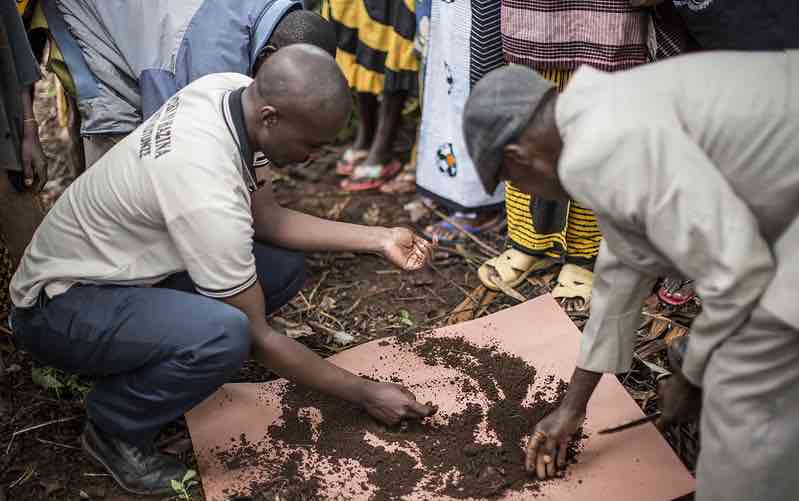Second in a series of posts on briefs by the Think20 (T20) task force on Sustainable Energy, Food, and Water Systems. T20 is a G20 engagement group that connects and collaborates with think tanks around the world to provide ideas and recommendations. The task force is one of 10 advising this year’s Saudi Arabia G20 Presidency. Read the first post here.
What do we mean by the “true cost” of food? When people think of food prices, they typically think about the price paid by consumers at the time of purchase (the “private cost”). However, this price may not include all of the costs to society. These “social costs” also encompass environmental and public health impacts stemming from practices and features of global and local food systems—including air and water pollution, overdrawn aquifers, antibiotic resistance, and diet-related diseases like diabetes. While consumers don’t pay these costs upfront, the costs are borne by society in other ways: For example, reduced harvests as a result of land erosion or soil degradation.
Policy can shape which social costs emerge and their significance by influencing four food system drivers: How much we produce, what we produce, how we produce, and where we produce. Some of these factors cross borders, thus affecting international public goods. When they do, they become international social costs that require international policy to be appropriately addressed.
Has the true cost of food been measured?
In our G20 Policy Brief, we compile a variety of existing estimates of some of the social costs of food in the United States and compare them to other food-system-wide estimates. Unfortunately, no internationally harmonized approach to measure the true cost of food currently exists. Without such an approach, it is difficult for countries to even discuss these issues, let alone consider reform.
What should be done?
The G20 is well situated to act as a leader in catalyzing international governance to address the challenges surrounding the true cost of food. We offer three proposals for G20 action: Mandating the development of a globally harmonized measurement of the true cost of food; coordinating reform of harmful policies; and setting the agenda for the introduction of beneficial policies. Proposal 1 would provide the knowledge-sharing needed to promote a common language and vision among G20 countries, while Proposals 2 and 3 comprehensively address critical policy reforms.
To begin the process, the G20 must give a mandate to the international scientific community, including organizations such as the UN Food and Agriculture Organization (FAO), the Organization for Economic Cooperation and Development (OECD), IFPRI, the UN Environment Programme (UNEP), the World Health Organization (WHO), and the Meetings of Agricultural Chief Scientists of G20 States (MACS-G20), to develop a harmonized method to measure the true cost of food.
This method could be a central contribution to the United Nations 2021 Food System Summit if it is consistent, evidence-based, and robust across countries and food products. The international scientific community will be able to use this measurement method to assess the relative magnitude of various social costs of food and to identify key policy types that contribute to food systems’ “hidden” costs. The G20 can then use this assessment to coordinate policy reforms aimed at removing harmful policy incentives that increase the social cost of food, and to propose beneficial policies that offset or reduce specific food system costs in socially acceptable ways. G20 member countries could repurpose money from the harmful policies removed in accordance with Proposal 2 for the beneficial policies in Proposal 3.
By establishing a clear understanding and measurement of the true cost of food, including all market failures, countries will be better able to design and repurpose their current agricultural policies to achieve a triple win: Improved productivity, resilience, and environmental stability.
David Laborde is a Senior Research Fellow with IFPRI’s Markets, Trade and Institutions Division (MTID); Marie Parent is an MTID Research Analyst; Valeria Piñeiro is an MTID Senior Research Coordinator. This post also appears on the IFPRI Food Security Portal blog.







